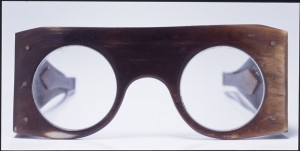The first state to adopt religous tolerance
The Netherlands, which had accepted religious refugees of various backgrounds, became the first state to adopt the principle of religious tolerance. It was followed by England which, following the Glorious Revolution, also extended tolerance to non-conformists on condition they pledge loyalty to the King (denying the Pope’s authority however). The concept of tolerance migrated from Europe to the United States and was incorporated into the “Bill of Rights”. Later on of course, ideas about tolerance helped fuel the French Revolution.
A long learning curve taught us Europeans to incorporate tolerance and religious freedom into our societies. As an antidote to the destructive potential of religion it was instrumentalized for national territorial ends. Tolerance became a matter of life and death. Previous experience has created a fundamental consensus of religious and ethical beliefs which today bind European societies together.
Religious dissent can be tolerated as long as it is confined to the sphere of private religious practice and does not threaten the basis of life within society. The Enlightenment became the basis for this general consensus.

Mendelssohn’s spectacles – his windows to the world he helped change. Moses Mendelssohn (1729 – 1786) sewed the seeds for Jewish reform and enlightened Europe’s philosophical world.
Jewish civil emancipation
During the 19th century, Judaism was finally permitted to enter the wider civil community. This was largely due to the Napoleonic reforms which utterly changed the legal and social framework for Jews as individuals and Judaism as a whole. Finally, the separation of church and state in the Weimar Republic inaugurated the ideological neutrality of the state and the equality of all religions.
It is correct to say that we Jews in Europe have been a major beneficiary of this trend to relativize religious truth. This has been true in the past, it is true for the present and it will remain true if we look at our perspectives on the future. The demand for tolerance appears to involve a relativization of religious truth which would suggest a weakened religious identity.
It is precisely this state of affairs which may in turn elicit a fundamentalist affirmation of religion by some. This fundamentalist turn easily degrades into intolerance against both inner-Jewish dissent and against other religious and ideological orientations. It is an Orthodox dilemma when the urge for tolerance finally leads to utter intolerance. It can only be avoided if tolerance is grounded in religious truth itself, that is, at the heart and essence of religious identity.
This begs an interesting question – is there proof that tolerance is an intrinsic part of our Jewish religious identity?
Hard-wired with respect
In 1769, the Jewish philosopher Moses Mendelssohn (1729-1786) was invited by the Zurich preacher Johann Caspar Lavater to a religious disputation aimed at converting the Berlin savant to Calvin’s Christianity. Mendelssohn countered with reference to the tolerant outlook in Judaism, which rejects proselytizing.
Jewish sources from the Talmud through to Maimonides, Moses Mendelssohn and up to Hermann Cohen agree that all non-Jews who observe the commandments and prohibitions are to be regarded as righteous among the peoples. Thus non-Jews can attain the same spiritual and moral level as the high-priest in the temple.
More than one truth
Asher Maoz of the University of Tel Aviv has raised the question whether Judaism recognizes freedom of religion for its members. His answer is ‘yes’ when it comes to coexisting with other faiths, his response is ‘no’ when it comes to the right of a Jew to take up a gentile religion. However, as he clarifies, Judaism categorically sanctions freedom within the religion. Therefore, it is for us Progressive Jews to reiterate the conviction of old that there is more than one truth within Judaism and outside of Judaism. In fact, what we hold to be the truth and the exact opposite may both be acceptable in the eyes of God.
Our pressing task remains to uphold the relevance of the Jewish tradition in the context of modernity for the Jewish people so that we can resume our holy task of the priesthood for the universality of humankind. If the Orthodox choose not to uphold these Jewish essentials, we Progressive Jews should definitely continue to do so.
Rabbi Dr. Walter Homolka is rector of the Abraham Geiger College at the University of Potsdam

